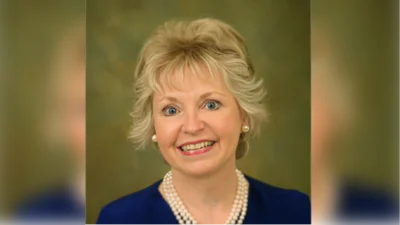The American Academy of Pediatrics (AAP) has provided additional details regarding safe sleep in its recently published policy statement, “Sleep-Related Infant Deaths: Updated 2022 Recommendations for Reducing Infant Deaths in the Sleep Environment.” The ABCs of safe sleep still apply:
- Alone: nothing but baby—babies should not sleep on the same surface with anyone else and there should be no loose items, such as soft toys, blankets or bumper pads in their cribs
- On their Back: for every sleep at bedtime and for naps
- In their Crib: always return the baby to his/her own sleep area—not in adult beds, even for naps
Where babies sleep is also a concern. Couches and armchairs are very dangerous places for infants to sleep alone or with someone. Additionally, babies often die in adult beds. The AAP acknowledges that many parents choose to routinely bed share, but per the policy statement, “on the basis of the evidence, the AAP is unable to recommend bed sharing under any circumstances.” Parents are encouraged to share their room, but not their bed.
Sleep-related infant deaths are still a major problem in Alabama. In 2020, 404 babies tragically died before their first birthday. Of those deaths, 61 were officially ruled sleep-related with the cause of death listed as either “sudden infant death syndrome” (SIDS) or “accidental suffocation or strangulation in bed.” An additional 41 deaths were listed as “undetermined,” although many of those deaths occurred while the baby was sleeping.
“All of these deaths are tragic,” said Dr. Wes Stubblefield, medical officer and pediatrician with the Alabama Department of Public Health. “Some of them are preventable, and that is what we need to focus on going forward.” There are risk factors that caregivers can control to lower their baby’s risk of dying while sleeping.
Dr. Stubblefield acknowledges that new parents are often exhausted, "Safe sleep can be hard, but your baby's life is worth it!"
What families can do:
- Share your room, but not your bed.
- Put babies in their own crib with nothing else.
- Do not smoke. Do not drink or use mind-altering medications while caring for your baby.
- Breastfeed.
- Have a plan: set a timer when you are tired. If you have dozed off and wake up, return your baby to the crib.
- Tummy time: babies need to strengthen their muscles. Work up to several sessions a day that add up to 15-30 minutes by 7 weeks of age. This always needs to be supervised.
- Make sure everyone who cares for your baby follows these guidelines.
- If you cannot afford a crib, call (334) 206-5675 and ask about Cribs for Kids.
- Have empathetic conversations with your patients.
- Acknowledge how hard safe sleep can be. Recognize sleep deprivation and recommend that they get help.
The State Perinatal Program is organizing an Alabama Public Health Training Network satellite conference and live webcast titled “Talking to Parents and Caregivers about Safe Sleep.” The event will be Thursday, August 25, 10 a.m.-12 noon. (Central Time). For more information and to register, please visit alabamapublichealth.gov/alphtn.
Original source can be found here.





 Alerts Sign-up
Alerts Sign-up